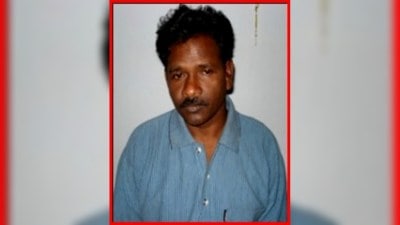Arrested after 32 years in the 1992 hospital shootout, accused denies identity, court rejects discharge and bail plea
The police sought to conduct a DNA test on Singh but he refused, following which he was identified with the help of a doctor, who had treated injuries sustained by Singh in 1992, during the shootout, and a cop who had recorded his statement then.
 On September 12, 1992, unknown assailants entered the hospital and carried out a shootout. (File photo)
On September 12, 1992, unknown assailants entered the hospital and carried out a shootout. (File photo)Arrested after 32 years, an accused’s claim that his is a case of mistaken identity, can be considered at the stage of the trial, a special court said, while rejecting the bail and discharge plea of a 63-year-old man held in the 1992 J J Hospital shootout case. The shootout resulting from a gang rivalry between gangs of Arun Gawli and Dawood Ibrahim had taken place at the J J Hospital, resulting in three deaths, including those of two constables.
Tribhuvan Rampati Singh was arrested in October 2024, after the police claimed that he was found serving a prison term in a jail in Mirzapur, Uttar Pradesh. The police claimed that Singh is the same person as Shrikant Rai alias Pradhan, the person named in the 1992 case. Singh, however, disputed this, stating that there is no evidence that he is the same person behind the shootout. The police sought to conduct a DNA test on Singh but he refused, following which he was identified with the help of a doctor, who had treated injuries sustained by Singh in 1992, during the shootout, and a cop who had recorded his statement then.
“…the medical examination of the injury certificate of the present applicant (Singh) also reflect that the applicant is the person who sustained injury in the incident who subsequently fled. When the applicant was asked to give a blood sample for DNA profile during investigation, he flatly denied the same. The defence raised by the applicant about mistaken identity is required to be considered at the stage of trial and not at this interim stage, when the eyewitness identified him as one of the assailants,” special judge Mahesh K Jadhav said in the order.
Singh through his lawyer Sudeep Pasbola had claimed that the identification by witnesses was done after 32 years and hence cannot be relied on. He also claimed that eyewitnesses had said there were two shooters, and that they had already undergone the trial, with one of them acquitted. Special public prosecutor Sunil Gonsalves said that apart from the witnesses, the court can also rely on the confessions of co-accused.
The court said there are sufficient grounds for proceeding against the accused and he has failed to make a case for bail.





- 01
- 02
- 03
- 04
- 05


























